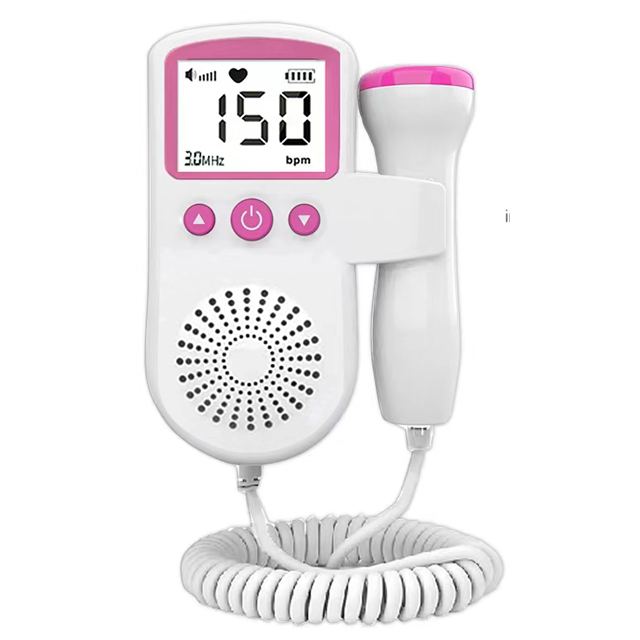Introduction to Fetal Dopplers: Understanding Their Purpose
Expecting a child is both a thrilling and anxious journey for many parents. The anticipation of meeting your little one is often coupled with concerns about their health and well-being. In this context, the fetal doppler emerges as a popular tool among parents-to-be. Used as a hand-held ultrasound device, a fetal doppler is designed to detect the fetal heartbeat, providing reassurance and a sense of connection to the baby. As the market for these devices continues to grow, understanding their purpose, functionality, and limitations becomes imperative for informed usage.
Differences Between Home and Clinical Fetal Dopplers
Fetal dopplers can be found in both clinical settings and for home use, each with distinct characteristics. Clinical fetal dopplers are used by trained healthcare professionals, ensuring high accuracy and reliability. These devices are medical-grade, regulated, and approved by health safety agencies to meet specific standards. On the other hand, home fetal dopplers, including Custom Fetal Doppler, ODM Fetal Doppler, and OEM Fetal Doppler, vary significantly in quality and functionality. It is crucial to acknowledge that home devices are intended to complement, not replace, professional medical appointments.
When Can You Start Using a Home Fetal Doppler?
The efficacy of a fetal doppler in detecting a heartbeat is contingent on the stage of pregnancy. Some manufacturers claim their devices, like Fetal Dopplers, can detect heartbeats as early as the 9th week, while others suggest the 12th or even the 16th week. It's essential to set realistic expectations about when a doppler can reliably function, as the fetal heart is often easier to detect during the second trimester. This variability underscores the importance of consulting with healthcare providers for guidance.
Safety Concerns with At-Home Fetal Dopplers
While the prospect of using a fetal doppler at home is alluring, safety concerns must be considered. The FDA advises against the casual use of dopplers, noting the potential risks associated with frequent exposure to ultrasound waves. Although there is no concrete evidence linking fetal dopplers to harm, cautious usage is recommended, as excessive use may present risks such as tissue heating. The key is moderation and ensuring that the doppler is not misused as a substitute for professional medical advice.
Potential Issues When Using a Home Fetal Doppler
At-home fetal dopplers present a set of challenges that can lead to undue stress. Misinterpretation of sounds, false reassurances, and technical difficulties are common issues. For instance, a user may mistake their own heartbeat or another biological rhythm for the fetal heartbeat. Additionally, lack of regulatory standards for some fetal doppler manufacturers and suppliers further complicates matters, highlighting the necessity for careful selection and use of reputable products.
How to Properly Use a Fetal Doppler at Home
Understanding the proper technique for using a fetal doppler enhances its effectiveness while minimizing potential anxiety. Begin by reading the instructions provided by the fetal doppler manufacturer or supplier. Generally, the device requires a conductive gel, like sonogram gel or aloe vera, to function efficiently. Users should move the device slowly over the lower abdomen to locate the heartbeat, which may require patience and practice. Being aware of the unique sound of a fetal heartbeat—faster than the mother's—is also helpful.
The Emotional Benefits of Using a Fetal Doppler
For many parents, the emotional benefits of using a fetal doppler are profound. Hearing the rhythmic beating of their baby's heart not only reassures anxious parents but also strengthens the emotional bond. This connection can be particularly comforting for those experiencing high-risk pregnancies or long intervals between check-ups. However, it is essential to balance these emotional benefits with the responsibility of ongoing medical consultations.
Consult Your Doctor: Professional Guidance on Doppler Use
While fetal dopplers provide a sense of control and connection, they cannot replace the expert care of healthcare professionals. Regular prenatal visits remain crucial for monitoring fetal development. Parents should discuss their interest in using a doppler with their doctor, who can provide personalized advice and address any concerns. Adhering to professional guidance ensures that doppler usage complements, rather than compromises, prenatal care.
Conclusion: Balancing Technology with Prenatal Care
Fetal dopplers symbolize the intersection of technology and the intimate journey of parenthood. While they offer undeniable advantages, such as reassurance and bonding, understanding their limitations is paramount. As consumers, it's vital to select devices from credible fetal doppler manufacturers and suppliers, and to use them responsibly. Above all, maintaining consistent communication with healthcare providers ensures that the health and safety of both mother and baby are prioritized.
Leis is a leading and fast-growing medical supplier committed to the research, design, development, manufacture, and marketing of high-quality medical devices. With a dedicated team experienced in delivering perfect service to families and hospitals, Leis aims to establish long-term partnerships with customers. Their diverse product line includes medical instruments like fetal dopplers, thermometers, and blood pressure monitors, all adhering to ISO13485 standards and CE certification, reinforcing their commitment to superior quality and customer satisfaction.

